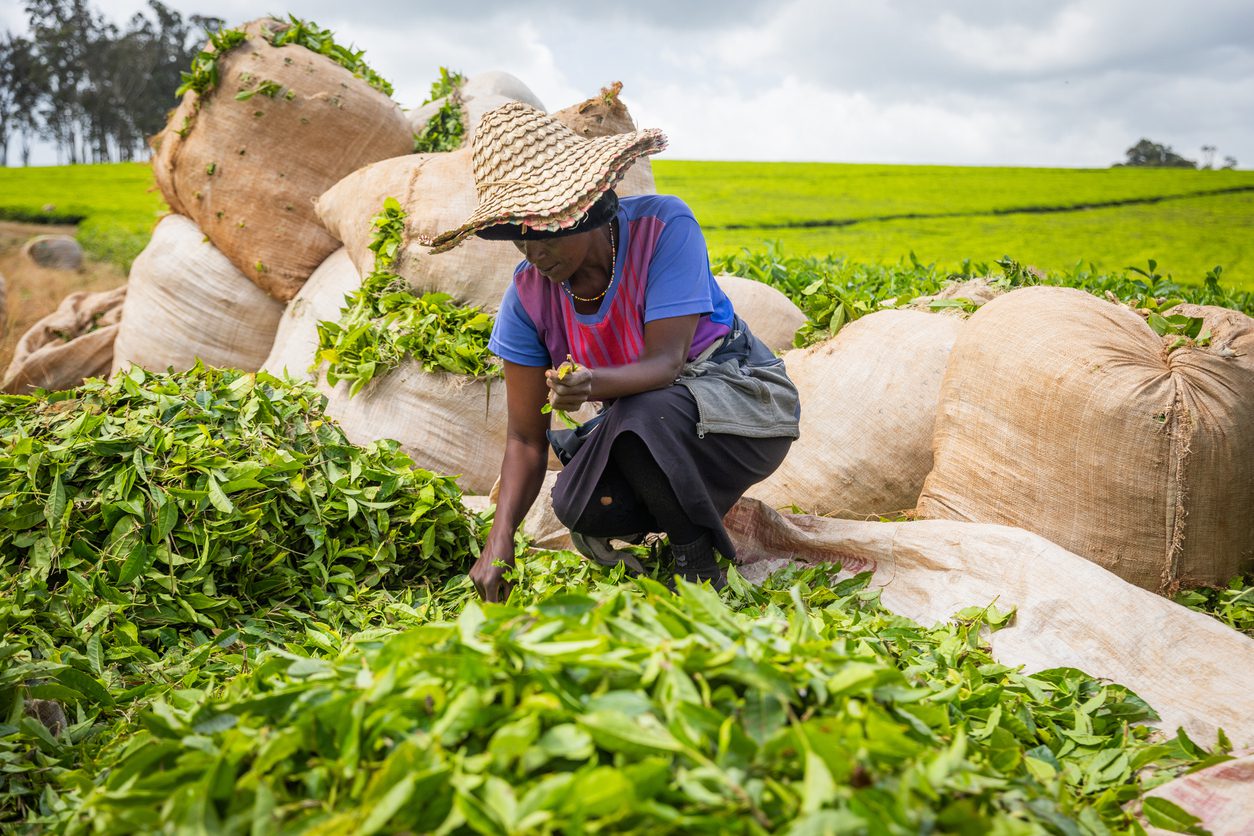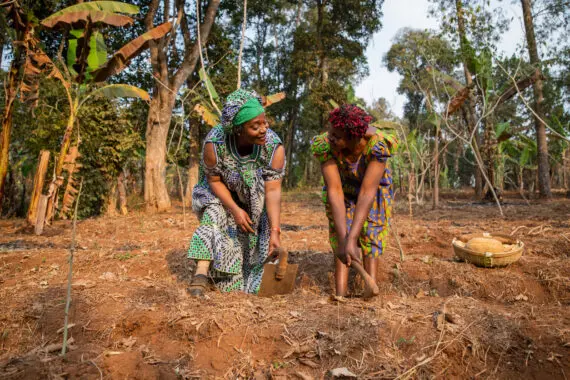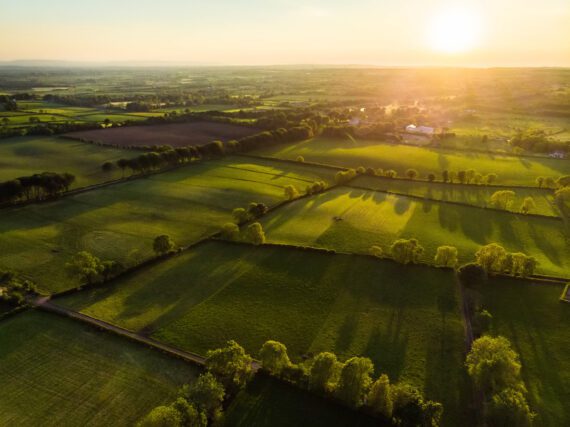By Isabel C. Vander Molen
Bread for the World often mentions that hunger and malnutrition have several root causes, including armed conflict, poverty, economic downturns, inequality, and extreme weather events. There is no single solution to hunger because there is no single cause.
This means that solving a complex problem like hunger requires addressing related socioeconomic conditions as well. This recognition that issues are interdependent led to the adoption of the Sustainable Development Goals (SDGs). We know, for example, that Bread’s main area of focus—ending hunger and malnutrition—is connected with progress on other SDGs such as gender equity and climate action.
The fact that almost every country has committed to the SDGs is also very important. Despite wide differences in the world, it is a fact that we all share this planet, its resources, and its problems.
One key strategy to end hunger is to advance a Just Transition. The main goal of a Just Transition is to prioritize workers and critical sectors as the world shifts to more sustainable and fair economic frameworks. Change, even positive change, can disrupt local and national economies. For example, smallholder farmers or people in rural communities may face barriers to obtaining financing, training, or access to programs that help them build resilience to extreme weather events or navigate new sustainability practices.
Because of these barriers, it is important to prioritize, protect, and empower family farmers and rural communities, helping them produce food while also bearing the brunt of climate shocks. Governments, civil society, and the private sector can work to make food systems more resilient and sustainable, particularly during 2025 in the lead-up to COP-30, the next U.N. global climate conference.
In an interview with the Inter Press Service, Moises Savian, Brazil’s Secretary of Land Governance, Territorial and Socio Environmental Development at the Ministry of Agrarian Development and Family Farming, highlighted the need to improve access to finance in rural areas.
Savian noted, “We are formulating a specific national plan for family farming, which constitutes the majority of our rural population. These communities are often the most affected by climate extremes, so public policies are essential. … Without this focus on [rural food system transformation],” he added, “there can be no just transition.”
The U.N. Food and Agriculture Organization (FAO) estimated in its 2024 State of Food and Agriculture report that global food systems generate over $11.6 trillion annually in adverse social, health, and environmental costs. These are sometimes known as “hidden” costs because they are often not included as economic costs. Policy interventions that recognize power imbalances and account for environmental damage should be used to reduce these hidden costs.
The report cites examples of how public policy can reduce hidden costs. One is to enact regulatory or financial incentives to adopt sustainable agricultural practices. Another is to design rural livelihoods strategies that minimize, but also include, hidden costs.
Reducing hidden costs and promoting a Just Transition requires policies that elevate farmers into emerging sustainable markets. This is only part of a larger effort to enact national economic strategies that guide industries, workers, and consumers through a transition to resilient food systems that pollute less and nourish more.
COP30 will take place in the heart of the Amazon in Belem, Brazil. Sustainable food systems will be top of mind because Brazil is both a significant agricultural net exporter and a key player in conservation. Approximately 60 percent of the Amazon rainforest is within Brazil’s borders. These circumstances have shaped Brazil’s approach to ending hunger sustainably, primarily through new economic and market strategies.
A New Climate Economy for the Brazilian Amazon, a 2023 report led by the World Resources Institute, articulates how an economic structure that accounts for the social and environmental impacts of economic decisions could help benefit the agricultural sector. The report calls this a socio-bioeconomy.
The World Resources Institute analysis for Brazil found that fully developing a socio-bioeconomy could create an additional 312,00 jobs and preserve an additional 81 million hectares (about 202 million acres) of standing forest by 2050, while also achieving net zero deforestation. Brazil’s socio-bioeconomy plan uses Just Transition principles to ensure that family farmers have equal access to funding and other resources so that they can become climate-resilient rather than climate-vulnerable. Particularly since family farms produce 23 percent of the nation’s goods and employ over half of rural workers, they need access to technologies and tools that can enable them to participate in a Just Transition.
The world is capable of moving more quickly this coming year to end hunger and malnutrition. Governments, civil society, and private agricultural interests should focus on protecting farmers and resources for future generations as they continue to lead, learn, and take action to end hunger and malnutrition. Simultaneously, the global community can learn from successes and challenges in Brazil’s efforts to improve livelihoods and end hunger while protecting the Earth.
Isabel C. Vander Molen is a Climate-Hunger Fellow at Bread for the World.



